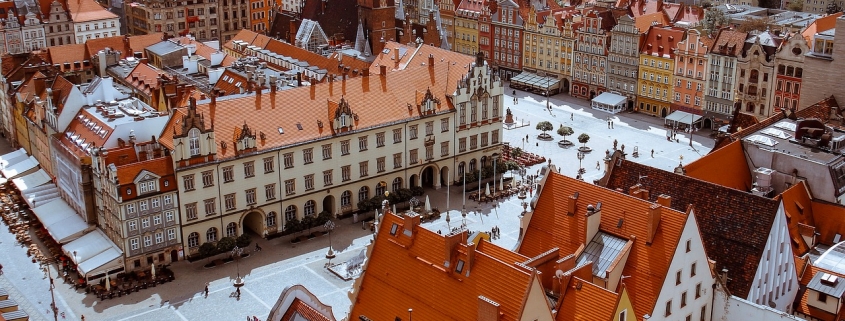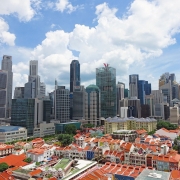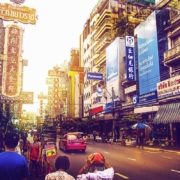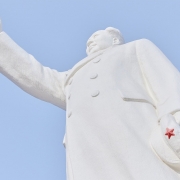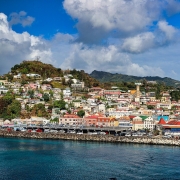Why was the Solidarity movement important?
Topic of Study [For H2 and H1 History Students]:
Paper 1: Understanding the Cold War (1945-1991)
Section A: Source-based Case Study
Theme I Chapter 3: End of Bipolarity
Historical context: Protests in the mid-1970s
In the 1970s, the Polish government had increased food prices, raising the cost of living even though wages remained stagnant. Labour unions such as the Workers’ Defense Committee (KOR) was formed to challenge the government’s policies. Yet, dissent was swiftly crushed by the government during the 1976 protests.
The Polish government and police worked against KOR, harassing its members, and in one extreme example, were likely responsible for the murder of Stanisław Pyjas, a student who was affiliated with KOR.
Nevertheless, KOR’s pressure on the Polish government was influential in securing the 1977 general amnesty of workers. The group then shifted its focus and name to become Social Self-Defense Committee KOR (KSS-KOR) in September 1977. KOR also reached out to dissident groups in Czechoslovakia, Hungary, and the Soviet Union, meeting with Charter 77 activists on the Polish-Czechoslovakian border twice and issuing a joint statement on the occasion of the tenth anniversary of the Warsaw Pact invasion of Czechoslovakia.
An excerpt from “Human Rights Activism and the End of the Cold War: A Transnational History of the Helsinki Network” by Sarah B. Snyder.
As the dissident movements formed in Poland, similar instances were observed in Czechoslovakia. “Charter 77” was developed as a advocacy group for human rights. Following the arrest of a Czech psychedelic rock band in 1976, a group of musicians, artists and writers came up with Charter 77. Although the Czech Communist government had imprisoned and tried some of the signatories, the Charter had left its mark in rousing public opinions to gave rise to the popular movement in 1989, known as the Velvet Revolution.
Formation of the Solidarność and Martial law
In August 1980, workers at the Lenin Shipyard in Gdańsk, Poland, organised a trade union called the Solidarność. The shipyard was a production facility for the global market, bringing in substantial foreign currency into Poland.
A year before, the Polish-born Karol Wojtyla (Pope John Paul II) delivered a speech, mentioning a phrase that inspired millions of Poles to challenge the oppressive government – “Do not be afraid”. Although the membership swelled to nearly 10 million, the Polish military led by General Wojciech Jaruzelski imposed martial law on 13 December 1981. Many Solidarity leaders were caught, such that the opposition was brought underground.
Then John Paul took an initiative. He wrote directly to Leonid Brezhnev in French, in his own hand… He also pointed out that an invasion would break the Helsinki Final Act of 1975, which had ratified the post-Yalta arrangements confirming the status quo of Soviet domination of Eastern Europe.
An excerpt from “The Pope in Winter: The Dark Face of John Paul II’s Papacy” by John Cornwell.
Martial law was lifted in 1983. However, by that stage, nearly 10,000 dissidents were rounded up. The Solidarity was not permitted to register again until 1989.
The resurgence of the Solidarity during the Gorbachev era
After Mikhail Gorbachev rose to power, a fresh wave of strikes occurred in Poland 1988, as the Poles demanded improvements in economic conditions and greater political participation. General Jaruzelski facilitated the round-table talks that lasted till April 1989. Eventually, the Solidarity was allowed to take part in free elections, securing a democratic victory.
Notably, Gorbachev’s hint that Soviet military intervention in Poland was an opportunity for the Poles to rise up, as exemplified by his speech at the United Nations on 7 December 1988 shown in the excerpt below:
“It is obvious,” he said, “that force and the threat of force cannot be and should not be an instrument of foreign policy… Freedom of choice is [mandatory,] a universal principle, and it should know no exceptions… The growing variety of options for the social development of different countries is becoming an increasingly tangible hallmark of these processes. This applies to both the capitalist and the socialist systems.”
An excerpt from “The Walls Came Tumbling Down: The Collapse of Communism in Eastern Europe” by Gale Stokes.
What can we learn from this article?
Consider the following question:
– Assess the view that popular movements were the main cause of the End of the Cold War in 1989.
Join our JC History Tuition to analyse contributing factors that led to the end of Bipolarity. The H2 and H1 History Tuition feature online discussion and writing practices to enhance your knowledge application skills. Get useful study notes and clarify your doubts on the subject with the tutor. You can also follow our Telegram Channel to get useful updates.
We have other JC tuition classes, such as JC Math Tuition and JC Chemistry Tuition. For Secondary Tuition, we provide Secondary English Tuition, Secondary Math tuition, Secondary Chemistry Tuition, Social Studies Tuition, Geography, History Tuition and Secondary Economics Tuition. For Primary Tuition, we have Primary English, Math and Science Tuition. Call 9658 5789 to find out more.

